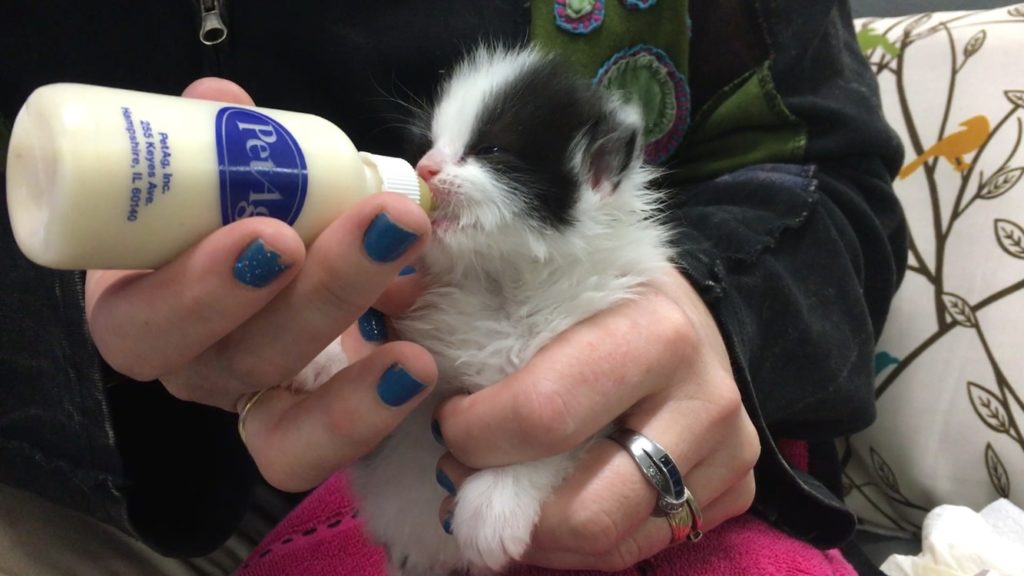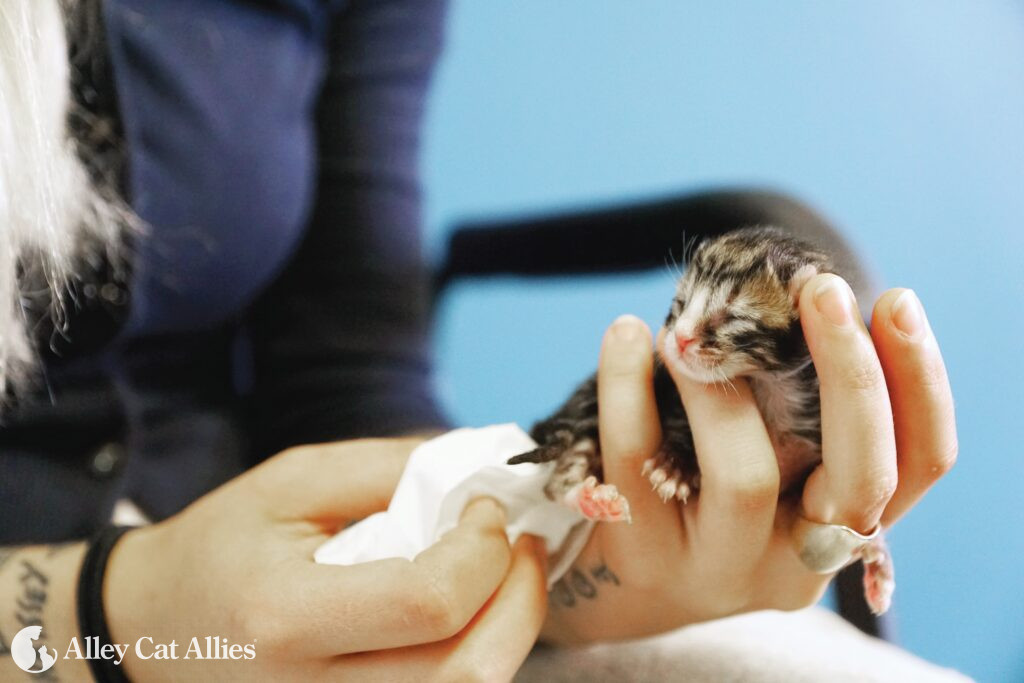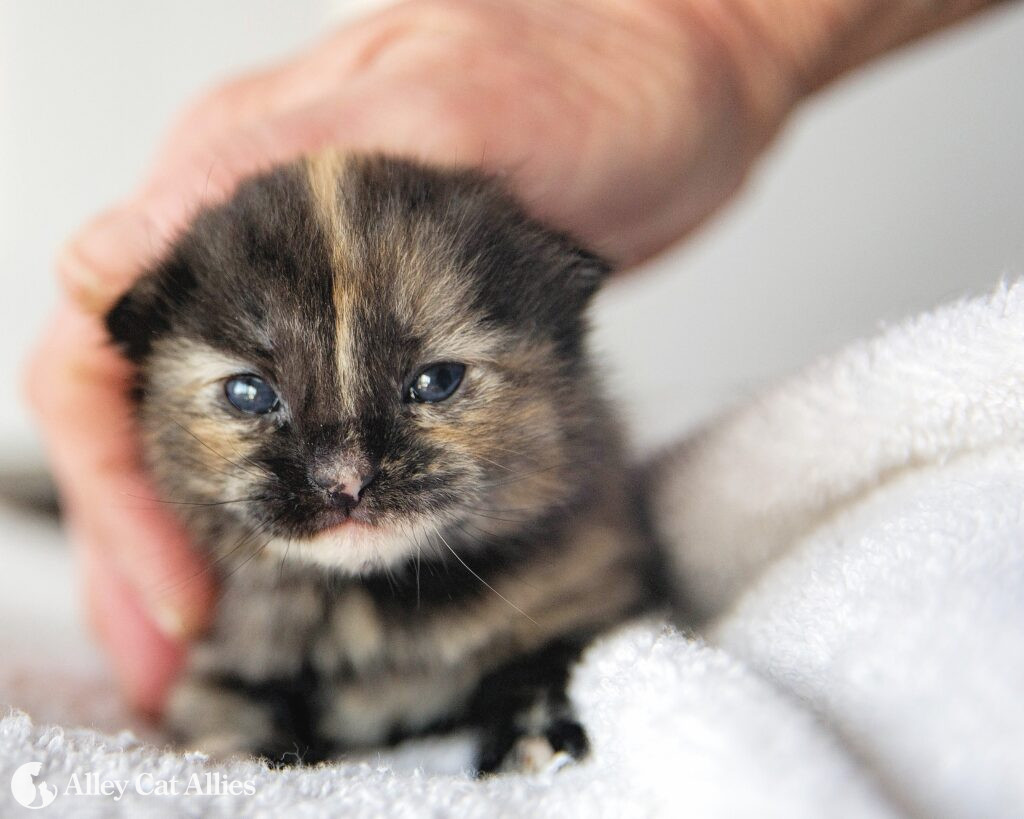Happy National Kitten Day! While celebrating kittens’ irresistible, adorable charm, let’s also keep in mind that kittens in our communities need our help every single day. With the right education, everyone can make the right decisions for kittens in their care and kittens born and living outdoors!
Please keep in mind that bringing kittens younger than 8 weeks old, and especially neonatal kittens who are under 4 weeks old, to animal shelters can be extremely dangerous for the kittens. Many animal shelters do not have the programs or policies to provide the round-the-clock care young kittens need to survive and thrive. In many cases, those kittens will be killed instead.
With that in mind, the best course of option if kittens are with their mother outdoors is to Leave Them BeTM. The truth is, many kittens outdoors don’t need to be “rescued.” In fact, removing kittens from their mothers and bringing them indoors can be detrimental to their wellbeing. If you see kittens alone, their mother is likely close by, and her instincts make her their best possible caregiver.
However, if young kittens need hands-on help and you are in a position to care for them, kitten caretakers are an extremely important part of the cat protection movement! Anyone can become a kitten caretaker with the right resources and instructions, and can save many lives.
Being a kitten caretaker is a commitment, but well worth it! Here are some of our most important kitten care tips:
Tips for Feeding

Neonatal kittens need to eat every few hours, depending on their age. They should only drink kitten formula, like Breeder’s Edge or KMR, not other animals’ milk. Remember to never feed kittens on their backs like a human baby or they could inhale the fluid. Keep them upright and on their stomachs, like they would nurse on their mother cat.
Record how much each kitten eats every time you feed them, so you know they are taking in a healthy amount. Consider feeding them in the same order every time so you won’t accidentally feed one kitten twice and another not at all.
Kittens need a different feeding frequency depending on their age. These are some basic guidelines:
- 10 days or younger– every two hours around the clock
- 11 days to 2½ weeks– every three to four hours
- 2½ to 4 weeks– every five to six hours
- 4 weeks and older– two to three times a day. Weaning occurs around this age.
Tip: If you are having trouble getting a kitten to “latch” onto the bottle, try pulling on the nipple when they start to suck, this will encourage her to suck harder and latch on.
Tips to Keep Kittens Clean
Keep in mind that neonatal kittens need help to clean and relieve themselves! That means baby wipes are a caretaker’s best friend.
Use baby wipes to clean excess sticky formula off kittens’ faces after each feeding. To groom kittens, try using a gentle toothbrush to mimic a mother cat’s rough tongue!
To stimulate kittens under 4 weeks old to use the bathroom, you can also use your baby wipe or a moist cotton ball or wash cloth. Gently rub the kittens’ anal area to stimulate urination and defecation.
Tips to Keep Kittens Warm (Very Important!)
Kittens can’t regulate their own body temperatures, so it’s important to keep them warm all the time. You can make them a cozy, soft nest simply by putting a blanket inside a box and adding in a heating pad like a Snuggle Safe, which goes in the microwave and then stays warm for up to 10 hours.
Make sure kittens have space to move away from the heat source, and always ensure the heat source is not directly on the kittens, but under the blanket, bed, or towel!
In general, try to keep the area kittens will be kept in to at least 80 degrees Fahrenheit.
Please note to never try to feed kittens who are chilled. Make every effort to warm them before introducing formula.
Balancing Work and Life with Kittens
Even if you can’t work from home, a nine-to-five desk job doesn’t have to be a deal breaker. Discuss with your workplace about taking the kittens in a carrier to work with you. Let them know you will be feeding the kittens every couple of hours and that doing so does not take long. Emphasize that other than feedings, the kittens will be sleeping in their carrier almost the entire day.
Make it clear that the kittens will not survive unless you can provide regular feeding.
If that simply is not an option, consider trying to share the responsibility with a neighbor or friend who has a different work schedule than you or a more accommodating job. They can take the kittens in the day, and you in the evening!
Learn more about guidelines for neonatal kitten care.
Determine a kitten’s age to know the right care she needs.
Get what you need to be a kitten caretaker with our Kitten Care Kit.





